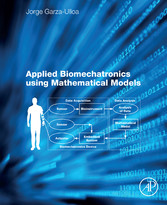Suche
Lesesoftware
Info / Kontakt
Applied Biomechatronics Using Mathematical Models
von: Jorge Garza Ulloa
Elsevier Reference Monographs, 2018
ISBN: 9780128125953 , 662 Seiten
Format: ePUB, PDF
Kopierschutz: DRM




Preis: 131,00 EUR
eBook anfordern 





